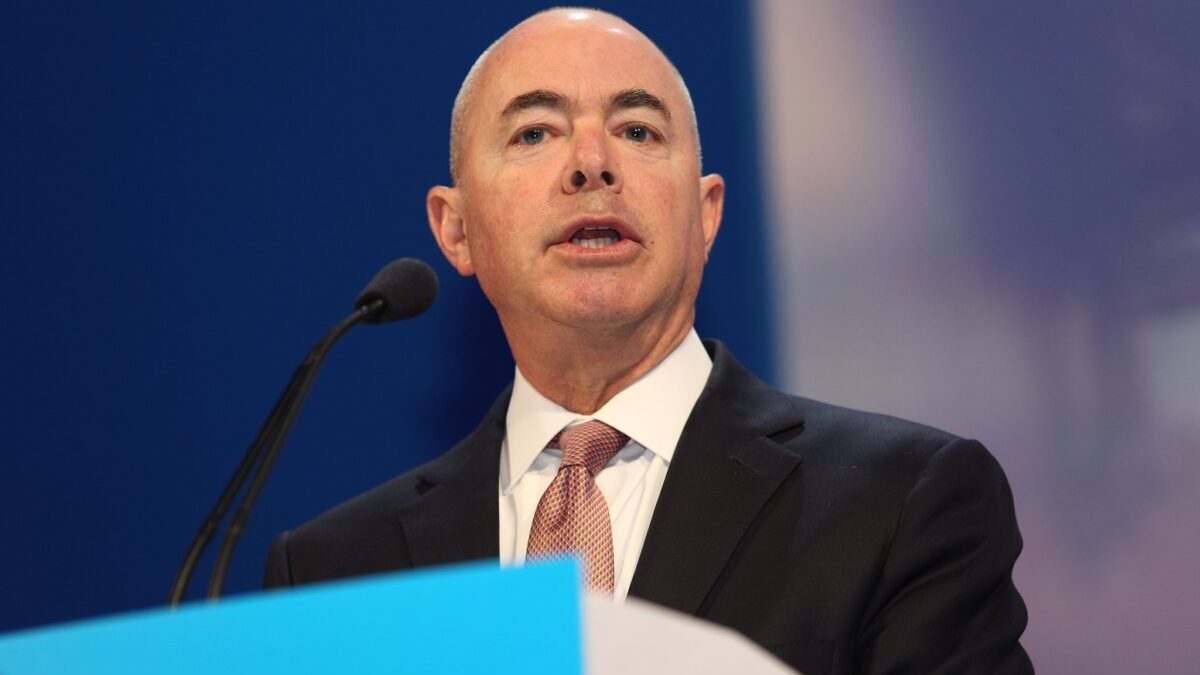
On Wednesday, the House of Representatives passed articles of impeachment against President Donald J. Trump. Now, it’s up to Speaker of the House Nancy Pelosi to fill the role of “impeachment manager” for the upcoming Senate trial.
After the impeachment vote, Pelosi said she would withhold transmission of the articles of impeachment until the Democrat’s get the quid pro quo they want in the Senate trial.
“The next thing for us will be when we see the process that is set forth in the Senate. Then we’ll know the number of managers that we may have to go forward and who we would choose… But, in any event, we’re ready, when we see what [the Senate has] we will know who and how many we will send over,” Pelosi said.
While the Speaker deliberates over the standards for the Senate trial, a role which she has no legality to play, there is a private campaign underway to have Rep. Justin Amash, an Independent from Michigan, fill the impeachment manager position.
Thirty freshman Democrats are asking Pelosi and other House leaders to consider Amash for the position. The role of the impeachment manager is essentially to join high profile lawmakers as they present the House’s case for impeachment to the Senate.
The group of freshman Democrats, led by Rep. Dean Phillips, D-Minn., are pushing for Amash to fill this role in hopes he can swing conservative Senators and voters alike towards impeachment. The problem is Amash does not fill the shoes of bipartisanship Democrats so desperately need.
Amash Is Not A Republican
When Amash was elected to the House of Representatives, he was a Republican. In 2019, after the Robert Mueller report on alleged Trump/Russia collusion was released, Amash decided to leave the GOP.
On July 4, 2019 Amash penned an op-ed for the Washington Post titled, “Our politics is in a partisan death spiral. That’s why I’m leaving the GOP.”
Today, I’m declaring my independence.https://t.co/4e5TeVtGRK
— Justin Amash (@justinamash) July 4, 2019
In order to achieve bipartisanship, Democrats would need to work across party lines. By definition, bipartisanship is the agreement or cooperation of two political parties that oppose each other’s policies. It is not an ideological difference, it is a party difference. If Amash does not identify with the Republican party, then working with him does not qualify as bipartisan support.
Amash Is Not Aligned With GOP
Amash cannot help Democrat’s win over conservatives on impeachment for the very same reason Democrats struggle to win over even the most moderate conservatives on impeachment — they both came to Washington DC with the ultimate goal of impeaching Trump.
Some members of Congress have been more forthright in their hatred of Trump, and goal of impeaching him. For example, just hours after being sworn into office in 2018, Rep. Rashida Tlaib, D-Mich., told her supporter she was going to “impeach the mother f****r.”
After the Mueller report was released, Amash took the report as evidence that Trump should be impeached.
Here are my principal conclusions:
1. Attorney General Barr has deliberately misrepresented Mueller’s report.
2. President Trump has engaged in impeachable conduct.
3. Partisanship has eroded our system of checks and balances.
4. Few members of Congress have read the report.— Justin Amash (@justinamash) May 18, 2019
His decision that Trump should be convicted of high crimes and misdemeanors was made prior to the July 25 phone call that initiated the 2019 articles of impeachment. Speaker of the House Nancy Pelosi did not see the Mueller report as ground for impeachment, given that she never took the Mueller report further than testimony. Yet, Amash saw the report as evidence enough to convict.
Amash favored impeachment after the Mueller report, so, even if there is no evidence to convict Trump in regard to Ukraine, Amash would still be calling for his impeachment. The timeline is clear, Amash was in favor of impeaching Trump before there was an impeachable crime, an actual impeachment inquiry, hearing, or trial.
After the release of the Mueller report, zero Republican lawmakers determined there was evidence to try Trump for impeachment. Republican leaders even acknowledged where they differed ideologically with Amash at the time.
“Justin Amash can determine his own future. But I think, on a philosophical basis, he’s probably in a different place than the majority of all of us,” said Kevin McCarthy, R-Calif., at the GOP’s weekly news conference in June.
Before he left the Republican Party, Amash left the House Freedom Caucus, a group designed to push conservative ideals in the House. Amash helped to create the group in 2015, but current members claim his views no longer represent the caucus.
“Justin Amash’s conclusions are poorly informed and fatally flawed and don’t represent the views of any of the Freedom Caucus members that I’m aware of,” Rep. Mark Meadows told the Washington Post.
When Republicans make the argument that voters should not trust the people who came to Washington to impeach Trump, that argument does not subside just because a representative used to have an ‘R’ next to his name. Amash wants to see Trump removed from office, while every other Republican does not, therefore, he is not a bipartisan presence as an impeachment manager.
If Amash really wanted to impeach the president, he would have not let his Trump derangement syndrome drive him out the GOP. If Amash were still a Republican, he could have been the Democrats’ “bipartisan” vote.
If Democrats were really focused on bipartisanship, they should have done so before the impeachment trial began. In order for the partisan process of impeachment to appear legitimate in the minds of all citizens, Democrats should have begun the process as a bipartisan inquiry. Instead, it had major bipartisan opposition from not only top Republican leaders, but Democrats as well.
To build the bipartisan support Democrats need for impeachment, they should have reached out to people outside of the Resistance, before the inquiry began. Not picking fellow Resistance members, such as Amash, after the inquiry is completed.
Ultimately, Democrats can try this strategy of leveraging the once-Republican Amash to gain conservative support, but it’s unlikely it will work in their favor due to the deeply partisan nature of impeachment. Amash may be a weapon for Democrats, but he’s no bipartisan victory.









